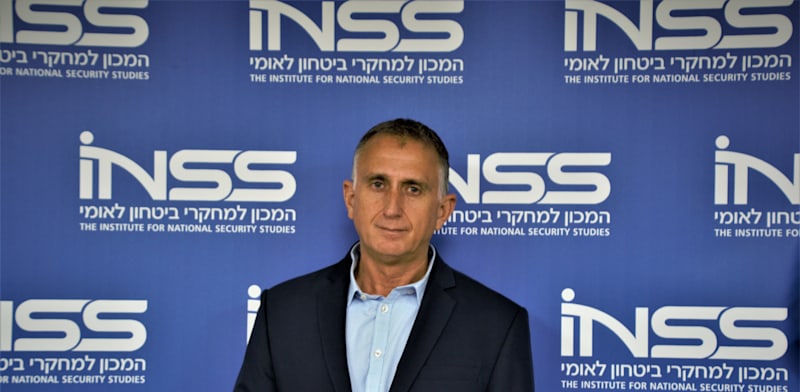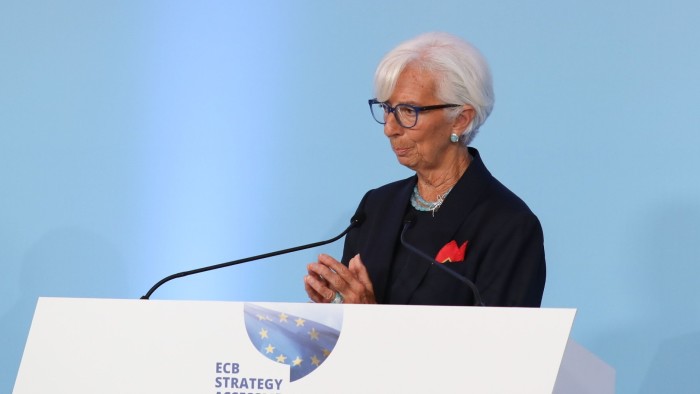Former head of Israel’s Military Intelligence and executive director of Tel Aviv University’s Institute for National Security Studies (INSS) Maj. Gen. (res.) Tamir Hayman is promoting, together with members of the US House of Representatives and Senate, the establishment of a joint US-Israel research fund for quantum computers. The proposed fund will have a budget of $200 million to fund collaborative projects with potential involvement of the UAE and Saudi Arabia, “Globes” has learned.
Israel and the US are considering promoting the plan through a presidential order signed by Donald Trump, or by promoting a bill submitted by Secretary of State Marco Rubio in 2021, when he was still a senator from Florida – to establish the research center. The legislation was not advanced during the Biden administration, and now both countries see an opportune time to implement it using an existing framework.
According to the proposal formulated by the INSS and AIQ-Lab (AI & Quantum Sovereignty Lab) founder and CEO Dr. Smadar Itzkovich, which promotes policy in the field of AI and quantum computing, the legislation could make use of existing models for joint funding of Israel-US research in various foundations. Among them, the Israel-U.S. Binational Industrial Research and Development.(BIRD) Foundation, which finances technological collaborations, BSF – the Binational Science Foundation, and the US-Israel Binational Agricultural Research and Development Fund (BARD) – which deals with joint agricultural ventures, some of which have been active since the 1970s. In the same format, the US and Israel will each invest $100 million between 2026 and 2030 in joint commercial ventures with private quantum companies – Israeli and American.
In this way, for example, Quantum Source, an Israeli company which is developing technology for implementing photonic quantum computers, could submit a joint application with US company PsiQuantum – which is currently building the world’s largest photonic quantum computer – and be awarded millions of dollars for developing a joint venture.
The possibility of diverting budgets from the 2022 US Chip Act, which sought to invest $280 billion in the US hardware industry, to the fund is also being looked at. This may be done by examining the possibility of financing international cooperation under the law. The management of the fund will be divided between offices in Tel Aviv and Arlington County, Virginia.
Access to a data centers
RELATED ARTICLES
According to the proposal, among the aims of establishing the binational venture are: “neutralizing Chinese ambitions in the quantum field through access to advanced hardware,” commercializing quantum technologies for medical applications and developing new materials, and harnessing new countries to join the Abraham Accords – with Saudi Arabia at the forefront of the venture.
Saudi Arabia joining the fund could open Israeli and US quantum companies to new investments, as well as to the graphics processors and data centers adapted to the age of AI that are being built in the region as a result of Trump’s visit to the Middle East in May. In addition, according to the proposal, after the establishment of the center and the introduction of existing Abraham Accords partners, including the UAE and Bahrain, Central Asian countries such as Azerbaijan, Kazakhstan and Uzbekistan will also be added, and in the longer term – depending on the development of the Abraham Accords – also Saudi Arabia, Kuwait and even Qatar.
Low priority
To enable joint research in the quantum field, Israel needs approval from US security agencies for joint development of quantum technology – an area that has been closed to Israeli cooperation due to Israel’s refusal to monitor exports to China. Israel was close to such approval three years ago. During the Lapid government, Israel signed “Jerusalem” agreements with the US for joint technological development and joint working groups were built in the fields of quantum, climate, health, agriculture and AI.
To move forward with joint research, Israel was asked to pass regulations and legislation that would tighten the possibility of technology leakage to China according to CFIUS regulations in the US, to avoid buying Chinese equipment for government agencies, and to tighten supervision of IP leakage from Israeli academia to China. However, the Lapid government was replaced, and in the current government the issue is a low priority and has not been promoted, which explains why President Biden included Israel in the category of countries to which exports of graphics processors should be monitored. Furthermore, the initiative to establish the Quantum Research Fund is currently being promoted by non-governmental organizations such as INSS and AIQ. These organizations are in contact with parallel institutes in the US, members of the Senate and House of Representatives, and relevant lobbies.
Israel leads in the field
The initiative to establish the fund arose due to Israel’s absence from the AI agreements signed in May between the US, the UAE and Saudi Arabia, and due to the failure to advance Rubio’s 2021 bill for US-Israeli cooperation, which then concerned the field of AI. However, in Israel, US interests are now being recognized in the Israeli quantum industry, because of predictions of breakthroughs in the field and hundreds of millions of dollars in funding for Israeli companies that are considered leaders in the sector, including Quantum Machines and Classiq.
“Israel ranks among the five leading countries in the global quantum industry and its ‘density’ of experts in Israel is six times higher than in the US,” says Dr. Smadar Itzkovich, one of the program’s initiators. “The US understands this and recognizes that there is planning for such legislation ahead of the US midterm elections and the general elections in Israel next year.”
Hadas Lorber, a former senior official in the National Security Council, leads the INSS project focused on strengthening Israel-U.S. relations. “We are now in the perfect storm in which Trump’s US can give Israel partnerships that it may not have been open to in the past – there is a favorable Congress, and regional momentum after the Iran operation in which the Israeli advantage is clearly visible in the Middle East. The US also now has an interest in embracing the countries of the region to prevent their leakage to the Chinese side of the map. For Israel – this is a critical alliance – if we are not around the regional geo-technological table that dictates the new alliances, we simply will not be. If we were late for the AI train, we have enough time for it in quantum.”
According to Dr. Ariel Sobelman, a senior researcher at INSS, “The bottleneck today in the development of AI and quantum is the inventory of computing infrastructure – the large data centers specializing in AI, and the electricity infrastructure that feeds them. The connection point to the Gulf and Saudi Arabia is aimed at these points – Israel may have knowhow in AI and a dominant group of startups and leading researchers in the quantum field, but it needs the computing and electricity infrastructure of the Gulf countries – the UAE, Bahrain and in the future Saudi Arabia too.
The Trump administration understood this by harnessing the world’s energy suppliers in the Gulf, with the understanding that by 2030 the US will need a much larger electricity supply to drive its AI activity, while at the same time taking their eyes off China.”
Since the beginning of the year cooperation between the Gulf states and the US in the field of AI is growing. For example, the Trump administration announced the Stargate project to network the country with data centers in partnership with the MGX UAE wealth.
Published by Globes, Israel business news – en.globes.co.il – on July 1, 2025.
© Copyright of Globes Publisher Itonut (1983) Ltd., 2025.







